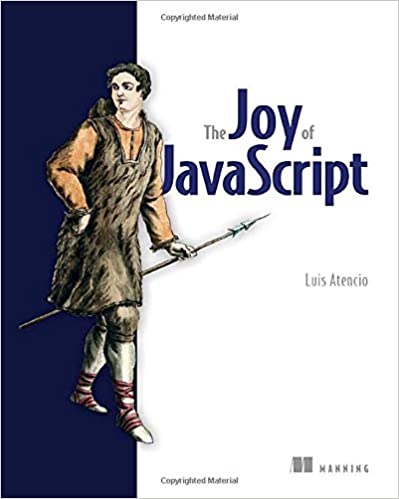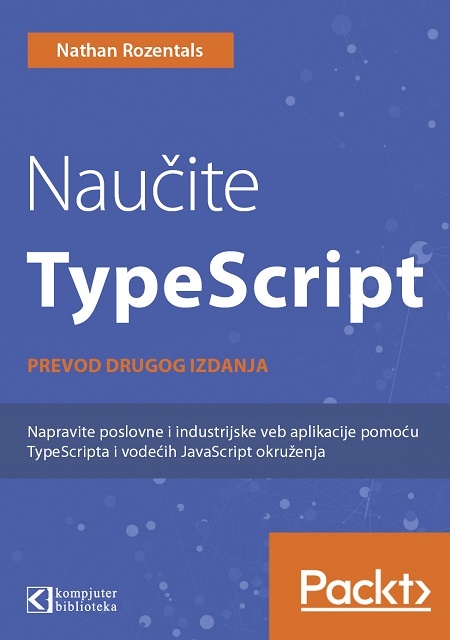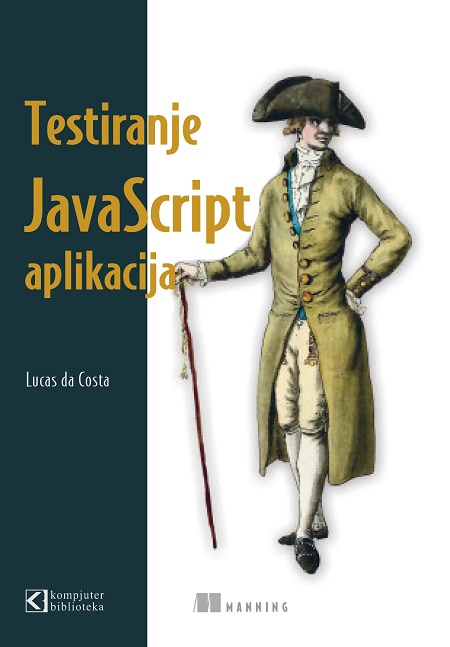
Autor: Luis Atencio
Broj strana: 360
ISBN broj: 9781617295867
Izdavač:
MANNING PUBLICATIONS ![]()
Godina izdanja: 2021.
 |
 |
 |
 |
 |
||||
The Joy of JavaScript introduces techniques that turn JavaScript programmers into JavaScript pros.
Summary
Whether building interactive browser-based applications or creating server-side applications in Node, JavaScript is the most widely used language for web programming. With new features, language improvements, paradigms, and potential use cases appearing regularly, there’s never been a more exciting time to be a JavaScript developer. In The Joy of JavaScript, author and JavaScript expert Luis Atencio teaches you key design concepts that lead to clean, lean, modular, and easy-to-maintain code.
Purchase of the print book includes a free eBook in PDF, Kindle, and ePub formats from Manning Publications.
About the technology
JavaScript is at the heart of web applications on the browser side and, via the popular Node.js runtime, it often powers the server side too. Simply put, the web runs on JavaScript.
About the book
The Joy of JavaScript introduces techniques that turn JavaScript programmers into JavaScript pros. You’ll work with cutting edge APIs, language features, and coding styles to tackle tricky problems in an elegant manner. Along the way, you’ll practice good object design, drive business logic with functional thinking, and untangle complex data flows.
What's inside
JavaScript’s objects and module system
Working with higher order functions
Identifying and creating composable software
Preparing for upcoming JavaScript features
About the reader
Written for experienced and passionate JavaScript developers.
About the author
Luis Atencio is a software engineer for Citrix Systems, author of Manning’s Functional Programming in JavaScript, and co-author of Manning’s RxJS in Action.
Table of Contents
1 JavaScript reloaded
PART 1 - OBJECTS
2 Inheritance-based object modeling
3 Linked, compositional object models
Object.assign and the spread operator to build new objectsPART 2 - FUNCTIONS
4 Writing composable, pure code
5 Higher-kinded composition
map and flatMapValidation data type to remove complex branching logic::)PART 3 - CODE
6 ECMAScript Modules
7 Hooked on metaprogramming
PART 4 - DATA
8 Linear async flows
Promise APIasync/await and asynchronous iterators9 Stream programming
Babel is a JavaScript-to-JavaScript transpiler in charge of converting next-level JavaScript or future JavaScript to a version of JavaScript that runs standard on your platform, whether it’s a browser or Node.js. This book introduced a few proposals that are still in their beginning stages. For this new syntax to work, we first have to use Babel to convert it to standard JavaScript for the version running inside the Docker container (Node.js 14). You can also transpile to your own platform versions. The bigger the gap between the standard that the code follows (such as ECMAScript 2020) and the standard supported by your browser or server, the more work Babel must do to transpile the code.
• Jaksa Suzic
Ova knjiga deluje zanimljivo. Napokon malo odstupanje od klascnog objasnjavanja JS-a.

Popust cena:
2200.00 rsd

Popust cena:
2200.00 rsd
© Sva prava pridržana, Kompjuter biblioteka, Beograd, Obalskih radnika 4a, Telefon: +381 11 252 0 272 |
||